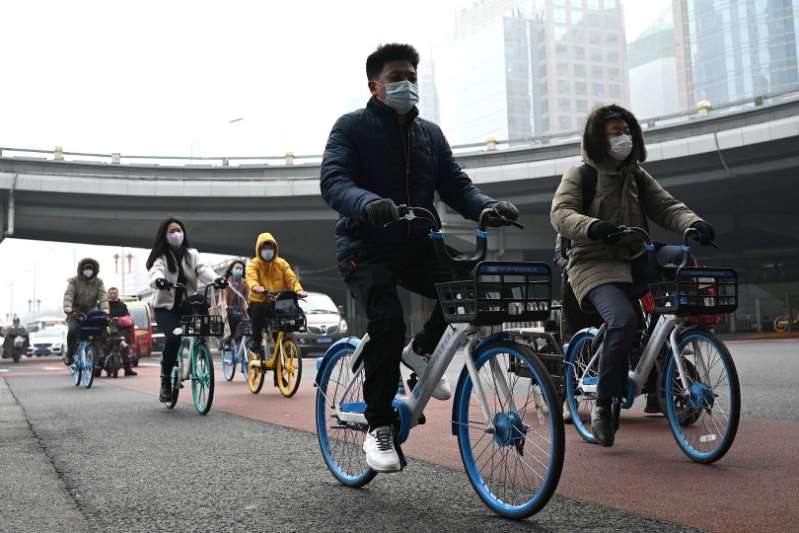Before the People's Congress, Prime Minister Li Keqiang presented China's strategy for the future.

Beijing people
Despite the global recession caused by the corona pandemic, China wants to achieve strong economic growth of “more than six percent” this year. In order to become more independent from abroad, Prime Minister Li Keqiang emphasized on Friday at the opening of the annual meeting of the People's Congress in Beijing that the development of the domestic economy must be “given priority”. Own innovation should also be promoted much more strongly than before.
This is intended to reduce the technological dependencies. The plenary session of the Chinese parliament will focus on the economic goals and budget for this year, the new five-year plan from 2021 to 2025 and a controversial electoral reform for Hong Kong. Beijing wants to curtail the already limited democracy in the Chinese special administrative region even further. The meeting of almost 3,000 delegates this year is shorter than usual and will only last until next Thursday.
Chin wants to increase military spending
Amid growing tensions with the US, India, Taiwan and the controversial South China Sea, China will increase its military spending by 6.8 percent this year. This means that spending on the military is growing faster than the overall budget. In the previous year, the increase was already 6.6 percent despite the Corona crisis. “The military's strategic capabilities to protect the sovereignty, security and development interests of our country are being strengthened,” said Premier Li Keqiang in his speech.
As an important part of the country's “great renewal”, China's head of state and party leader Xi Jinping is massively advancing the modernization of the armed forces. “That includes being a leader in the world in terms of international influence and having a first-class military that can fight and win wars,” said Helena Legarda, an expert at the China Merics Institute in Berlin.
China with growth even in 2020
The growth target of more than six percent for the second largest economy came as a surprise. In the previous year, the prime minister had refrained from making such a requirement as usual due to the uncertainties caused by the pandemic. In 2020, despite the slump in the economy, 2.3 percent growth was achieved, especially at the beginning of the year. As the world went into recession, China was the only major economy that posted growth.
Beijing responded to the crisis with a massive economic stimulus package. The International Monetary Fund expects China to grow by 8.1 percent this year. Because of the ongoing billions in spending, the Prime Minister announced that the budget deficit as a percentage of economic output this year, at 3.2 percent, will again be above the critical mark of three percent. In the previous year it was 3.6 percent.
Innovation at the heart
An important realignment is the concept of “two cycles”, with which the domestic economic circulation is to be promoted. China wants to make itself more independent because of the sanctions imposed by the USA and the global crisis. As part of the five-year plan, the strategy is to “expand domestic demand, intensify structural reforms on the supply side and generate new demand with innovation-driven development and high-quality offers,” said Li Keqiang.
Innovation remains at the heart of the modernization offensive. “We will strengthen our science and technology to strategically support China's development,” said Li Keqiang in his hour-long report. The digitization of the country should also be accelerated further. One will “work faster to develop a digital society, a digital government and a healthy digital ecosystem”.
“The Chinese government is trying very hard to avoid shocks for domestic companies through the global supply chains,” said the chairman of the European Chamber of Commerce in China, Jörg Wuttke, on Chinese state television about the new policy. “At the same time, I hope that doesn't mean that China will turn its back on the world.”
MPs vaccinated
Because of the pandemic, the plenary session had to be postponed to May last year. The normalization in China is demonstrated by the fact that it will take place again in March as usual. The MPs in the Great Hall of the People are all vaccinated and wore mouth and nose protection, while only the members of the top leadership appeared on the podium without a mask. The most populous country has largely got the virus under control with curfews and mass tests for millions, as well as contact tracing, quarantine and strict entry restrictions.

